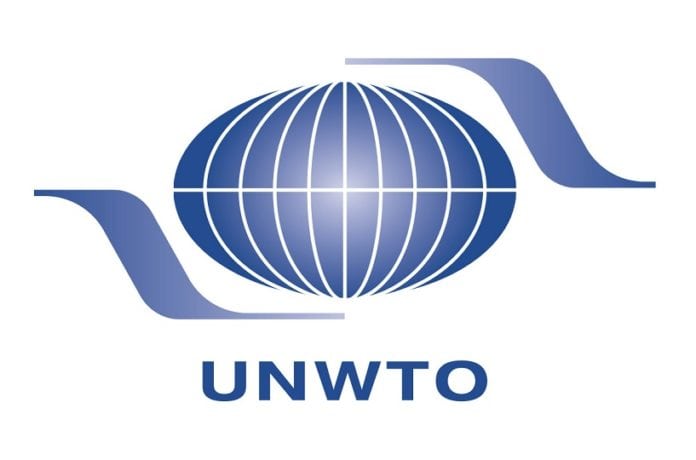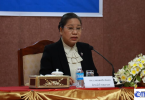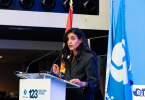From infrastructure and communication to food production and transport, tourism and construction play key roles in a circular economy framework that supports sustainable development. The World Tourism Organization (UNWTO), together with the Sustainable Buildings and Construction Program of the One Planet Network, addressed this challenge during the United Nations High-Level Political Forum on Sustainable Development (9-18 July, New York, USA).
Tourism and construction are part of the overall economic value chain. Best practices in circular economy thinking that can help these large economic sectors shift to sustainable consumption and production (SCP) were at the center of the event ‘Tourism & Construction: Circular Economy solutions for SDG12’, organized by UNWTO.
Advancing sustainability in the tourism sector and fulfilling its responsibility in the achievement of the Sustainable Development Goals (SDGs) is a task that benefits from new technological advances, continuous innovation and the strengthening of models such as the circular economy. Especially in view of SDG12 on ‘sustainable consumption and production patterns’, and considering the need to grow responsibly as a sector overall, tourism has an important role to play in the decoupling of economic development from resource use.
With its vast links to other economic activities and direct interaction between consumer and producer, tourism can – if managed well – create positive, long-lasting impacts that go well beyond the sector. Adapting circular production and consumption patterns that accelerate sustainability is therefore key to the long-term health and resilience of tourism businesses and destinations.
Against both this background and the review of SDG 12 at the High-Level Political Forum, the event ‘Tourism & Construction: Circular Economy solutions for SDG12’ underscored that embracing circularity implies robust measurement and monitoring of impacts of tourism and construction activities, including energy and water use efficiency, climate change mitigation, waste management, local sourcing, sustainable land use, biodiversity protection and decent employment, among others.
The 17 SDGs represent a common vision for prosperity, equality, justice and climate action, brought together under the 2030 Agenda for Sustainable Development. Goal 12 calls for more responsible SCP patterns and practices across sectors, with the One Planet Multi-Partner Trust Fund for SDG 12, inaugurated on 17 July 2018, to support partners’ commitments to accelerating this shift. The Fund is a joint effort of the UN Environment Program, the Food and Agriculture Organization, UNWTO, UN-Habitat and the UN Office for Project Services.
‘Tourism & Construction: Circular Economy solutions for SDG12’featured panels and presentations from the governments and tourism and development administrations of Bhutan, Botswana, Finland, France, Mexico and Switzerland. The gathering also played host to the launch of UNWTO’s Tourism for SDGs Platform, an interactive online tool that aims to create collaboration, motivate discussion and foster action between the tourism sector and the world of sustainable development. The platform, developed with the support of the Swiss Secretariat for Economic Affairs, is for policy makers, companies and all tourism stakeholders to connect and jointly advance their SDG implementation strategies.
Concluding the event, the Head of Delegation for Sustainable Development from the Ministry for the Ecological and Inclusive Transition of France stressed the need to accelerate the shift towards SCP and encouraged both tourism and construction to build cross-sectorial cooperation. If properly developed and used, circular economy solutions will be instrumental to transforming the sustainability of our economic model.
About the One Planet – Sustainable Tourism Program
The One Planet Sustainable Tourism Program is part of the ten-year framework of programs on sustainable consumption and production, official implementation mechanism of SDG12 aiming at mainstreaming sustainability among tourists and tourism stakeholders worldwide.
Circular economy thinking can enhance this shift because it promotes changes in the consumption and production of goods and services: from buy-use-discard to buy-use-reuse or refurbish, and from traditional ideas of ownership towards sharing economies.
yahoo






